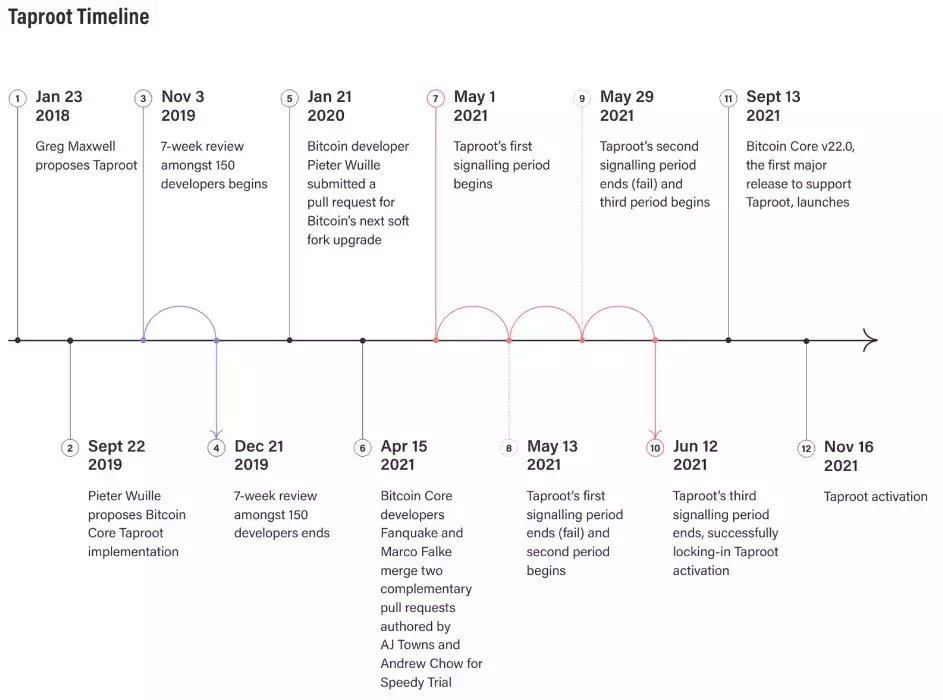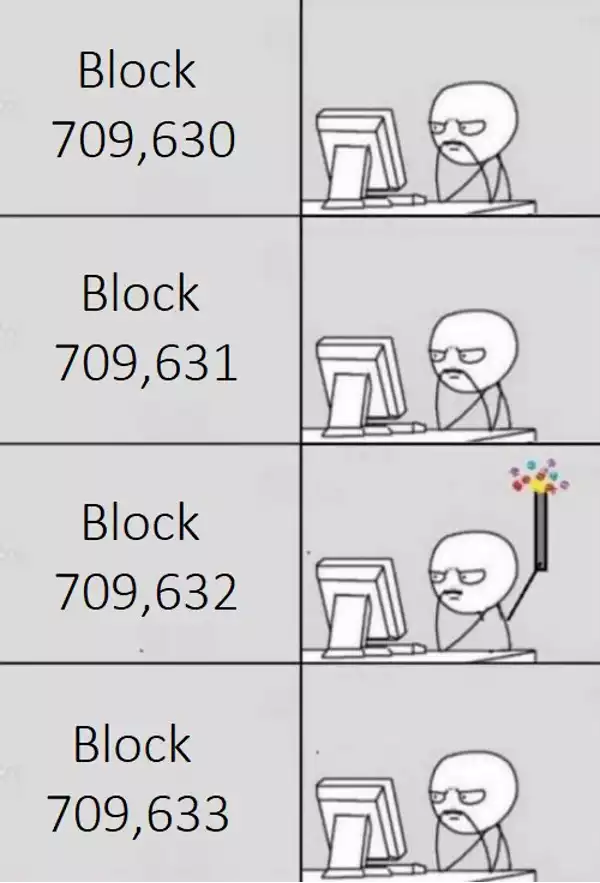Bitcoin Taproot Upgrade Takes Hold
News
|
Posted 18/11/2021
|
6168
Bitcoin just got better! Block 709,632 was officially the first Bitcoin block mined with the new Taproot upgrade. This marks the first upgrade since 2017 which saw both the “soft fork” Segregated Witness as well as a “hard fork” which led to the creation of Bitcoin Cash. Let’s take a dive in and see what this upgrade has in store for Bitcoin and it’s hodlers.
The upgrade has actually been in the works since 23 Jan 2018 and has been through a long chain of reviews and signalling periods to ensure that the network remained secure.

The Taproot upgrade is made up of three major ‘Bitcoin Improvement Proposals’ (BIPs) designed to improve the network’s security, privacy and scalability. The changes reform Bitcoin’s scripting language to make future upgrades much easier to implement.
BIP340: The Schnorr digital signature scheme will be integrated with the existing system to enable the aggregation of data, thus reducing the amount of block space consumed by each transaction.
BIP341: “Taproot” will build on the SegWit (Segregated Witness) of 2017 to improve privacy, lower transaction fees and expand on the speed and scalability of Bitcoin’s Lightning Network.
BIP342: “Tapscript” updates Bitcoin’s scripting language to enable the Schnorr and Taproot signatures to be read. In effect, it enables Bitcoin to make future upgrades to the network easier in the future. The scripting language will now enable schnorr and taproot transactions.
For many users, the changes will seem modest: modest reduction in transaction costs, slightly faster. A big part of what’s changing is to do with digital signatures. Each individual leaves what you could think of as fingerprint on each transaction. While it won’t give individual bitcoin addresses greater anonymity, it will make simple transactions indistinguishable from those that are complex and involve multiple addresses - a.k.a smart contracts. The advantages are for privacy features where multi-signature transactions will appear in the same way that single-signature transactions do. The upshot is that smart contracts like those used in DeFi (Decentralised Finance) will become viable.
In 2015, Ethereum launched scriptable smart contracts which revolutionised the space for developers. Even today significant parts of the cryptoverse are built on Ethereum as ERC-20 tokens (including of course our own Gold Standard and Silver Standard 100% bullion backed tokens). Previous upgrades in the Bitcoin network have been followed by significant price rises. According to Charles Edwards, CEO of investment firm Capriole, "The market has not priced in the massive Bitcoin Taproot upgrade."
TL;DR: Transaction fees will come down. Users will be able to conduct smart contracts with the same speed, fees, privacy and efficiency as simple transactions. One of the major criticisms of Bitcoin is that it is too slow and expensive. While it is unlikely that Bitcoin will ever become the fastest and/or cheapest network, it is continuing to develop whilst maintaining the highest level of security.
We previously wrote in more detail on this back here.
With all the work that went into the upgrade, one would have expected a lot more fanfare, but this more or less sums up how it looked to an uninterested observer:

That said, after previous upgrades we have seen subsequent price gains and this could be the catalyst after this nice pull back we are presented with right now.